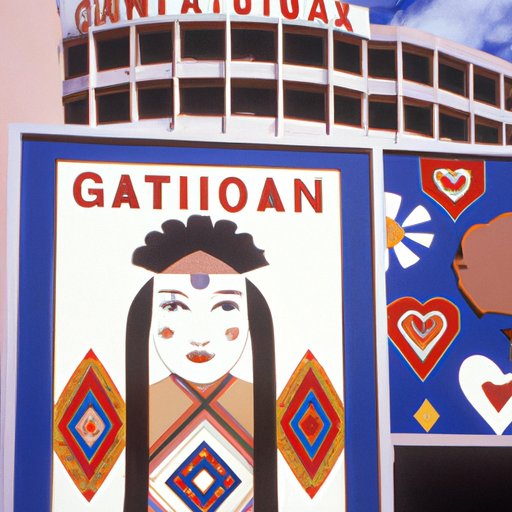Introduction
Utah is a unique state with a fascinating history of anti-gambling laws. Unlike most states in America, Utah has no casinos – and no legal forms of gambling, for that matter. In this article, we’ll delve into the reasons behind Utah’s strict anti-gambling laws, their impact on the state’s economy, and what alternatives visitors can enjoy instead.
The Unusual Truth: Why You Won’t Find Casinos in Utah
Utah’s anti-gambling laws are some of the strictest in America. All forms of gambling are illegal, including casinos, slot machines, horse racing, dog racing, and sports betting. These laws even extend to social gambling – meaning that residents cannot legally engage in a friendly game of poker with friends.
The impact of these laws on the state’s residents is significant. Although Utah has a lower rate of gambling addiction compared to other states, problem gambling is still a concern. Residents who do struggle with addiction often have to seek help in neighboring states.
Utah’s No-Gambling Stance: The Fascinating History Behind It
To understand Utah’s no-gambling stance, it’s important to look back at its history. Utah became a territory of the United States in 1847 and was settled largely by members of the Church of Jesus Christ of Latter-Day Saints, or Mormons. The Mormon faith condemns gambling, and this belief has been reflected in the state’s laws for over 100 years.
Utah’s conservative political climate and religious culture have also played a role in shaping its stance on gambling. The state’s government and law enforcement agencies are committed to enforcing these laws and maintaining Utah’s reputation as a non-gambling state.
No Casinos in Utah: How it Impacts the State’s Economy
Without a doubt, Utah’s anti-gambling laws have had a significant impact on its economy. The state is losing out on potential revenue from tourism, and nearby states are benefiting from Utah’s lack of casinos. For example, Nevada, Colorado, and Wyoming all have thriving casino industries – and visitors are often drawn to these states to gamble.
Additionally, Utah’s no-casino policy has made it difficult to attract large-scale conventions and events. It’s no secret that casinos are often associated with luxurious hotels and conference centers, which can offer numerous benefits for business tourism. Without these facilities, Utah is at a disadvantage compared to other states.
The Best Alternatives to Casinos in Utah for Thrill-seekers
While Utah may not have casinos, it does offer plenty of other entertainment options for thrill-seekers. Outdoor recreation is a major draw for visitors – with opportunities for hiking, skiing, rock climbing, river rafting, and more.
Other alternatives for those who enjoy gambling include traveling to nearby states where gambling is legal. For example, Nevada, Colorado, and Wyoming all have casinos within driving distance from Utah. Visitors can also enjoy other forms of entertainment, such as nightlife, shopping, and cultural events.
How Utah’s No-Casino Policy Differs from Other States
When compared to other states, Utah’s anti-gambling laws are among the strictest in America. While some states may have limitations on certain types of gambling, such as sports betting or online gambling, Utah has a blanket ban on all forms of gambling – including social gambling with friends.
The political and cultural differences between Utah and other states play a role in these variations. Utah’s conservative, religious culture is unique compared to more liberal states on the East and West coasts, for example.
Why Utah’s Ban on Casinos is Here to Stay
Despite efforts to change Utah’s gambling laws, it’s unlikely that the state will legalize gambling anytime soon. The religious and cultural factors that influenced these laws remain central to Utah’s identity, and many residents continue to support them. Political attempts to change the laws have failed in the past, and there is little indication that this will change in the future.
No Casinos in Utah: The Impact on Native American Tribes
Utah’s no-casino policy also affects Native American tribes in the state. While several tribes have expressed interest in building casinos, they have been met with opposition from state officials. However, some argue that allowing Native American gaming in Utah could offer significant economic benefits – both for the tribes themselves and the state as a whole.
Conclusion
Utah is a unique state with a long and fascinating history of anti-gambling laws. While these laws may be frustrating for some visitors, they are unlikely to change anytime soon. However, Utah still offers numerous alternatives for those who enjoy gambling – from outdoor recreation to nearby casinos in neighboring states. Whether you’re a resident or a visitor, there’s always something exciting to explore in Utah.
